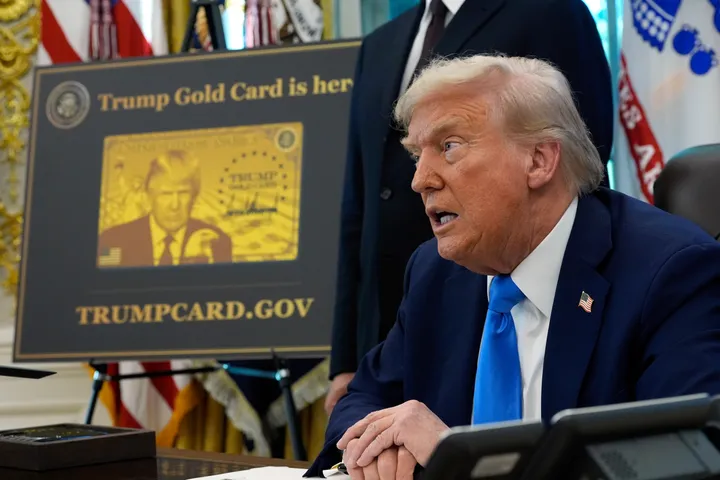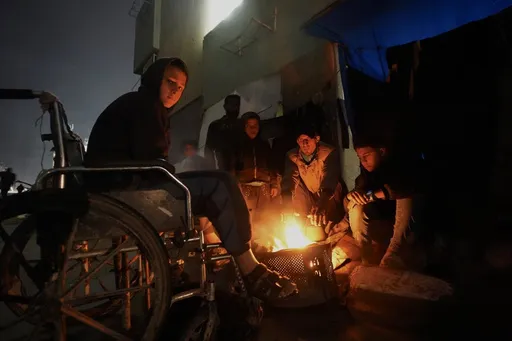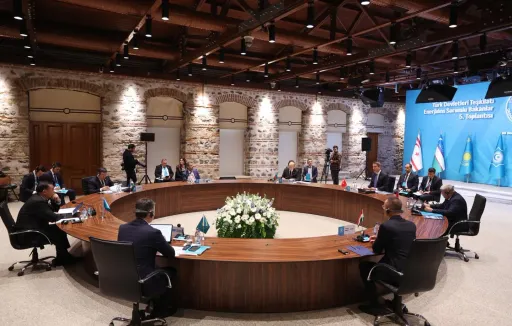By Toby Green
The world’s press has received news of a “Covid variant” in the past week. “ERIS” was labelled a “variant of interest” by the World Health Organization on August 17th.
The next day, WHO Director-General Dr Tedros Ghebreyesus declared that “although COVID-19 is no longer a global health emergency, it remains a global health threat”.
Most public interest so far has been directed at the West. Reports from the Center for Disease Control in the US note that ERIS accounts for around 17% of new infections.
Some American scientists have expressed alarm that the new variant contains 36 mutations and is more closely related to earlier virus branches.
One Seattle virologist described the variant as an “evolutionary jump comparable in size to that which originally gave rise to Omicron”.
Still, most American scientists quoted in mainstream news outlets seem hopeful that the new Covid boosters about to hit the market will be effective against the new variant.
As a CBS headline said, “Covid hospitalisations up 60% as booster slated to arrive soon”.
Different picture
Until the new vaccine is approved by the Federal Drug Agency (FDA), the Arizona Family newspaper warned, we should all be “hand washing, covering your cough, [and] social distancing”.
Yet, with one British Medical Journal headline reporting in the past week that “the FDA approved an antipsychotic that failed to show a meaningful benefit but raised the risk of death”, the relationship between ERIS and the arrival of the new boosters has provoked cynicism in some quarters.
All this may seem familiar. While the Guardian tells its readers that the new variant is “a reminder the pandemic never fully ended”, US outlets such as CNN have been fretting about new research suggesting that the arm in which a patient received a vaccine makes a difference to their immunity.
But in the rest of the world, the picture is different. In Africa, the news story around ERIS has not made much of a media inroad – with one exception.
In South Africa, there has been a slew of similar headlines as in the U.S., noting the new variant’s arrival and recommending vaccination as the solution to the new health threat.
Punitive measures
However, the fact that the story has yet to make headlines anywhere else on the continent is a reminder that COVID-19 produced rather different experiences worldwide.
South Africa is an interesting case. The country had the strictest lockdown and containment measures anywhere on the continent.
Yet it is also the country where COVID-19 deaths currently account for around 40% of the recorded deaths from the disease in Africa.
Some analysts see the harsh lockdown and the Covid outcomes as related: in a social context where, in informal settings in Africa, half of the families in urban settings may live in one room, curfews and lockdowns can exacerbate infections.
This is a reminder that pandemic control measures have been very controversial in Africa.
On April 17th 2020, a distinguished group of African intellectuals signed an open letter to African political leaders, noting that: “Adopting the all-securitarian model of ‘containment’ of northern countries – often without much care to specific contexts – many African countries have imposed a brutal lockdown upon their populations.''
Suppose such containment measures have met the agreement of middle classes shielded from crowded living conditions, with some having the possibility to work from home.
In that case, they have proved punitive and disruptive for those whose survival depends on informal activities.
The last three years have shown these fears as to the pandemic response to have been fully justified. With a median age of around 19, Africa was unlikely to suffer severely from Covid-19.
Lockdowns impact
Yet the policy response has meant that years of IMF and World Bank-led debt and austerity at the macroeconomic level now beckon.
The impacts on the continent’s informal sector have been even worse. Transport lockdowns and school closures have led to gender inequalities and food insecurity, so political leaders will need to assess proposed global pandemic policies in the future.
This is all the more important given how COVID-19 is now shifting broader patterns in global health.
US President Biden’s pandemic plans seek to inaugurate a new pandemic infrastructure across the world, with the ability to develop vaccines to combat new diseases at rapid speed “next time around”.
This is in keeping with philanthropic ambitions to create high-tech solutions to future health threats.
The stable door
This changing policy framework coincides with a shift in WHO healthcare spending priorities.
Last year, WHO implemented a new Pandemics Fighting Fund of US$10 billion per year, requiring Low and Middle Income Countries (LMICs) to invest in pandemic preparedness as an “in-kind contribution”.
At the same time, growing funding gaps are opening up in WHO programmes to fight the major diseases in LMICs: the funding shortfall for the malaria programme rose from US$2.6 billion in 2019 to US$3.8 billion in 2021, while spending on Tuberculosis fell from US$6 billion in 2019 to US$5.5 billion in 2021 (a 20% real terms lose).
With WHO now funding high-tech healthcare and yet underinvesting in treating diseases with high mortality burdens, it’s not surprising that Africa’s press has not leapt to reprint ERIS press releases this time.
This may be shutting the stable door after the horse has bolted, but that is better than repeating the mistakes of 2020.
The author, Professor Toby Green, is a historian of West Africa and of global inequality. He is the co-author of "The Covid Consensus: The Global Assault on Democracy and the Poor—A Critique from the Left"
Disclaimer: The viewpoints expressed by the author do not necessarily reflect the opinions, viewpoints and editorial policies of TRT Afrika.
























